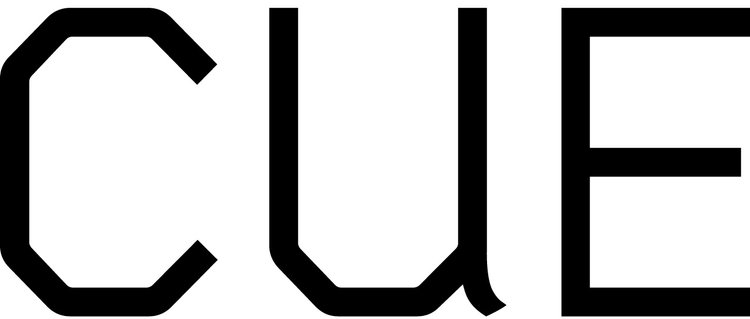Embodied Scores: Methods of Archiving
Desire Lines: Lecture
with Rashaun Mitchell and Silas Riener, moderated by Cori Olinghouse
Saturday, December 7, 6-8pm
90 minutes with time after for Q&A
FREE
*Audience will be invited to participate in aspects of the Desire Lines practice - no movement experience is needed
In this expanded lecture involving live demonstration, archival video, and guided exercises, choreographers Rashaun Mitchell and Silas Riener explore the improvisational practices and provisional methods of archiving that underlie their unfolding and iterative project, Desire Lines. In nature and landscape architecture, ‘desire lines’ are alternate, unofficial routes or social trails. They represent an accumulated record of disobedience and transformation in public space. Applying this phenomenon to a process of group improvisation, this practice puts deep focus on the path-making we deploy in our thought and memory structures for movement, navigation, and structure building. Archived on colored index cards that are continually added to and revised, Mitchell and Riener, with ever-changing participants, construct a living index that feeds into their practice.
To date there have been four iterations of this work. Desire Lines: Prismatic Park, a 12-hour movement marathon at Madison Square Park in 2017, Desire Lines: Retrofit, a durational installation with found objects at SFMoMA in January 2018, and Desire Lines: Translation, a process of transmission and the beginnings of archival production at the Maggie Allesee National Choreographic Center at Florida State University in March of 2018. Most recently at the Joyce Theatre, they premiered SWITCH, a spoke of Desire Lines that focuses on the mechanics of spontaneous creation.
Collaborator Cori Olinghouse will conclude the evening with a discussion exploring the ways their work builds sensorial relations or assemblages with people, places, and objects and the unruly and tactile methods of archiving that travel adjacently.
Since 2010, Rashaun Mitchell + Silas Riener have created dance in response to complex and active spatial environments, often merging elements of fantasy, absurdity, and quiet contemplation into challenging multifaceted performance. After working together in the Merce Cunningham Dance Company, Mitchell and Riener developed a keen interest in the way abstraction and representation coincide in the body. Their collaborative work takes many forms, from site-specific installations, improvisational dances, and traditional proscenium pieces to highly crafted and intimate, immersive experiences. Historical influences and aesthetic forms collapse into a visually charged hybrid physical language. Together they have been part of Lower Manhattan Cultural Council’s Extended Life Dance Development program, the New York City Center Choreographic Fellowship, and have been artists in residence at EMPAC, Mount Tremper Arts, Wellesley College, Jacob’s Pillow, and Pieter. Their work has been presented at MoMA PS1 as part of Greater NY, The Chocolate Factory, New York Live Arts, Danspace Project, REDCAT, ICA Boston and Summer Stages Dance, and Walker Art Center.
Cori Olinghouse is an interdisciplinary artist who works at the intersection of performance, archives, and visual storytelling. In 2017 she founded Portal as a way to explore the knowledge that arises in performance and improvisational systems towards the trajectory of social action. Her approach to performance archiving has been celebrated at the Museum of Modern Art, Duke University, Bard College, and Wesleyan University. As part of this work, she’s engaged in a constellation of projects with artist Autumn Knight, choreographers Jean Butler, Yanira Castro, Mina Nishimura, Kota Yamazaki, Rashaun Mitchell + Silas Riener, Melinda Ring, Gwen Welliver, and visual and performance artist Sylvia Palacios Whitman. Recently, Olinghouse collaborated with video artist Charles Atlas on a moving image installation of Trisha Brown’s archival materials for Judson Dance Theater: The Work is Never Done, an exhibition for the Museum of Modern Art. Formerly, as archive director for the Trisha Brown Dance Company, she developed a cataloging and preservation initiative to assist in the legacy planning for Brown’s company and archive (2009-2018), a company she danced for from 2002-2006. She holds an MA in Performance Curation from the Institute for Curatorial Practice in Performance at Wesleyan University, and serves as visiting faculty at the Center for Curatorial Studies at Bard College.
Embodied Scores: Methods of Archiving is a series of collaborative lectures organized by Cori Olinghouse on behalf of The Portal (Portal) with Shona Masarin. This series explores multiple entry points into Portal, a living archives initiative, research studio, and visual storytelling platform formed in 2017 by artist, archivist, and curator Cori Olinghouse. Joined by acclaimed archivist and curator Ann Butler, filmmaker and visual artist Jules Rosskam, and choreographers Rashaun Mitchell and Silas Riener we contemplate distinctions across theory and practice, preservation and the ephemeral.
CUE Art Foundation is wheelchair accessible. Service dogs are welcome. There is an all-gender, ADA compliant, single stall bathroom in the gallery. The space is not scent-free, but we do request that people attending come low-scent. The closest wheelchair accessible MTA subway stations are Penn Station and Herald Square Station.


